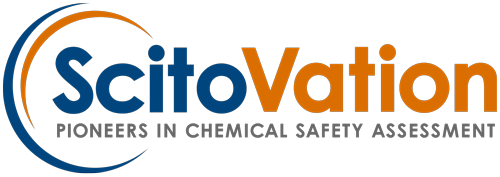In this presentation, Dr. Zhoumeng Lin introduces how we develop physiologically based pharmacokinetic (PBPK) models of drugs, environmental chemicals and nanoparticles for applications in nanomedicine, food safety, and human health risk assessments. He presents his recent studies to illustrate each application. Dr. Zhoumeng Linalso introduces a new physiological parameter database for PBPK modeling in food-producing animals, including cattle, swine, sheep, goats, chicken, and turkey. In addition, he shares his team’s experience and his perspective on the roles of artificial intelligence (AI) in these areas and how PBPK and AI approaches can be integrated to support each other.
About our Speaker:
Dr. Zhoumeng Lin:
Dr. Zhoumeng Lin is an Associate Professor in the Department of Environmental and Global Health and a member of the Center for Environmental and Human Toxicology and Center for Pharmacometrics and Systems Pharmacology at the University of Florida. He received a B.Med. in Preventive Medicine from Southern Medical University in 2009 and a Ph.D. in Toxicology from the University of Georgia in 2013. He completed his postdoctoral training in the Institute of Computational Comparative Medicine at Kansas State University in 2016. He was an Assistant Professor from 2016 to 2021 and then an Associate Professor from March to May 2021 at Kansas State University, prior to joining the University of Florida as an Associate Professor in May 2021. Dr. Lin’s research is focused on the development and application of computational technologies, especially physiologically based pharmacokinetic (PBPK) modeling, to study nanomedicine, food safety, nanoparticle and chemical risk assessment. He is a co-author of more than sixty peer-reviewed publications. His publications have received several awards, including the Society of Toxicology Biological Modeling Specialty Section Best Paper Award in 2020. Dr. Lin teaches a graduate level course on PBPK modeling every year. He is a co-editor and a co-author of five chapters of the textbook entitled “Physiologically Based Pharmacokinetic (PBPK) Modeling: Methods and Applications in Toxicology and Risk Assessment”.
Abstract:In this presentation, I will introduce how we develop physiologically based pharmacokinetic (PBPK) models of drugs, environmental chemicals and nanoparticles for applications in nanomedicine, food safety, and human health risk assessments. I will present our recent studies to illustrate each application. I will also introduce a new physiological parameter database for PBPK modeling in food-producing animals, including cattle, swine, sheep, goats, chicken, and turkey. In addition, I will share our experience and my perspective on the roles of artificial intelligence (AI) in these areas and how PBPK and AI approaches can be integrated to support each other.
About ScitoVation:
ScitoVation helps clients assess chemical compound safety using innovative science, next-generation technology, and professional expertise. ScitoVation is known for partnership, flexibility, and proven success in its work to develop safer and more effective pharmaceuticals, food ingredients, agricultural chemicals, commodity chemicals and consumer products. A spin-off of the former The CIIT and The Hammer Institutes for Chemical & Drug Safety Sciences, ScitoVation is an industry leader of New Approach Methods (NAMS) for chemical/drug discovery & development in the rapidly evolving global regulatory landscape.
